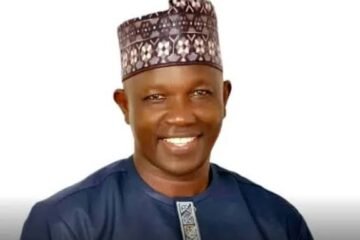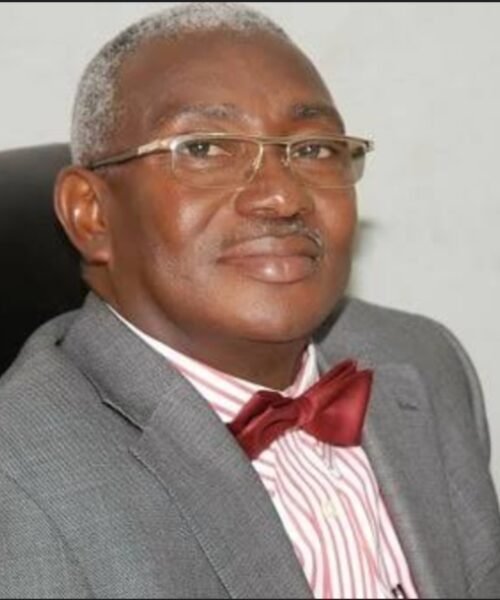By Adeyẹmí Johnson Ademọwọ
The death of the late Awujale of Ijebuland, Oba Sikiru Adetona, was always bound to be historic. But not many expected the seeming negative storm it stirred in the soul of Yoruba culture.
From the undercurrents of public reactions, one thing is clear: we are fast losing our grip on what it truly means to be Yoruba and more urgently, what it means to sit on the sacred stool of Obaship.
It is unfortunate and, indeed, very disturbing that this moment has ignited a painful question: Are the Ijebu now to be seen as people who neither revere tradition nor value their heritage?
I say no. But the actions, and inactions, surrounding the late monarch’s burial have placed a dark cloud over that proud heritage, of which I proudly share!
Let us be clear: Culture is dynamic, yes. It bends, evolves, and sometimes reforms. But tradition is foundational. It is the heartbeat of a people’s identity. It holds the line between what we are and what we are becoming.
You may modernise culture, but you do not desecrate tradition or alter it at will. To tamper with tradition is to tamper with the soul of the land.
The late Oba Adetona had every right to be a Muslim. That is his faith. No debate there. But where the tension begins is when private faith is allowed to override the communal spiritual obligations of the throne.
The king is not just a man; he is a symbol! He embodies all faiths, all people, all rites. As Baba Yemi Elebuibon notes, “the Oba is not an individual, he is a plural body: the living past, the breathing present and the spirit of the land.”
Sadly, what we witnessed recently in Ijebuland was a continuation of the discord between the throne and the traditional worshippers.
It pointed to the fact that the longstanding rift between the late Awujale palace and the Osugbos (who are custodians of rites) since the 70s, was never resolved, even in death.
And worse still, it appears that the obnoxious law put in place, with the support or connivance of the Governor, Dapo Abiodun, by the Oba ensured that traditional rites were sidelined entirely at Ijebu obas’ burials. That is not just worrisome; it is a tragedy!
So, we must ask: Should personal religion override the sacred obligations of a throne?
The answer is a resounding no! As Jacob Olupona reminds us, African ‘kingship’ is not just political, “it is spiritual. It is sacred. The throne is a covenant, not just with the living, but also with the ancestors.”
To erase those obligations is to betray that covenant.
Going forward, this should never be allowed to happen again. Whoever ascends any Yoruba stool must be made to understand the weight of tradition. If need be, he should swear an oath with Iṣẹṣe symbols, not just to govern, but also to preserve; to protect the sacred rites; to honour the Iṣẹṣe—the ancient paths. These are not optional accessories to the throne; they are its foundation!
Equally dangerous are the now commonplace pretenders occupying the role of obaship in Ijebuland; those who wrap themselves in traditional attire for ceremonies, but discard the substance of our culture in practice. These are the true enemies of Yoruba civilisation.
They are quick to speak about reform; yet, what they seek is erasure. We must call them out.
And we must ask ourselves: If even Britain, at Queen Elizabeth II’s burial, could uphold its centuries-old rituals with dignity, why must we, as Africans, abandon ours in the name of religion or modernity?
Why must we Christianise or Islamise every cultural space until nothing of our own is left?
This is not about fetishism. No one is asking for the oba’s body to be roasted or buried in secrecy. Enough of those ignorant insinuations.
What we are demanding is respect for tradition, for spirituality and for the deep cultural protocols that make Yoruba ‘kingship’ meaningful.
To every would-be oba across Yorubaland, hear this: You may be rich in gold, educated in the West, devout in your faith, but once you sit on that throne, you are no longer yours alone.
You belong to the land, the people, and the spirits. And you must never allow your personal beliefs to desecrate that sacred trust.
Let us restore the dignity of the stool. Let us banish the pretenders. Let us protect what remains of our tradition before we lose it all to ignorance masked as piety. Ire o!
*Ademowo, a Professor of Social Anthropology and Cultural Studies , is of the Center for Indigenous Knowledge and Afro-Diaspora Studies, Department of Sociology, Afe Babalola University, Ado-Ekiti. He is also the Aare Mayegun Obayori Orimolusi of Ijebu-Igbo.
















